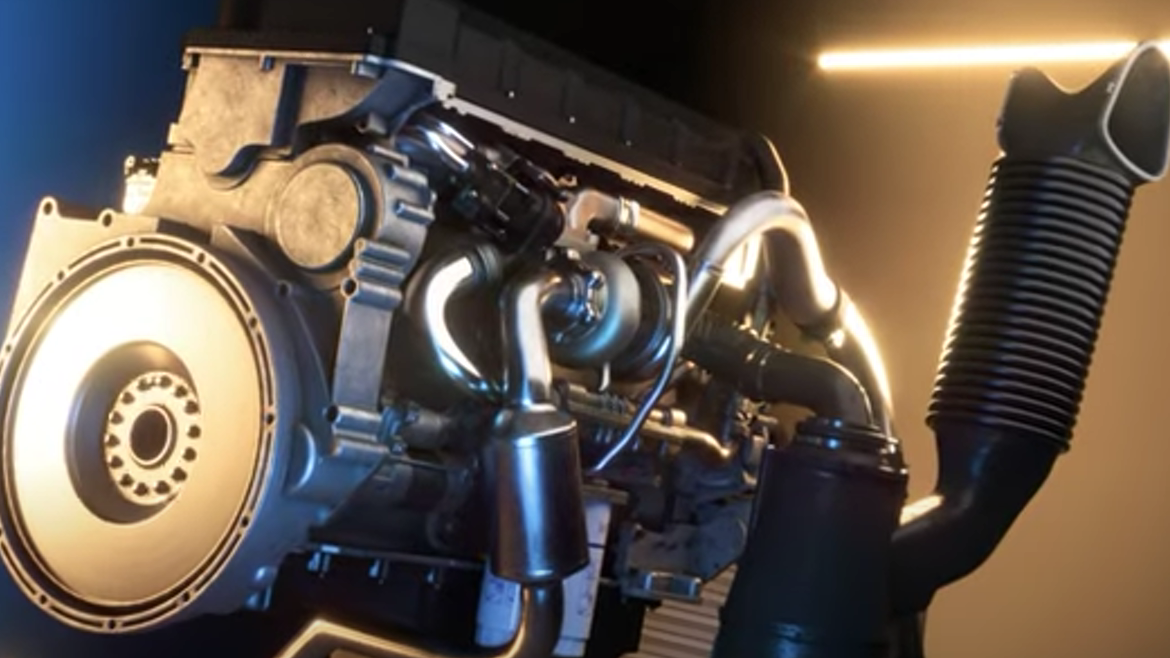Aug 21, 2019
Posted by Matt Joyce, Vice President, Global Sales & Marketing
In heavy-duty trucking, nothing is more important than optimizing truck life and performance—keeping the fleet on the road, making money.
And to that end, heavy-duty diesel engine oil has always had one primary job: protecting engine hardware so those trucks can stay on the road for as long as possible.
But there’s an important change that has taken place in the past few years that fleet owners and operators should be paying attention to, if they haven’t already: the beginning of a shift toward durable and efficient lubricants—engine oils that are designed to protect critical engine components while providing optimum fuel efficiency—for use in new model diesel trucks, spurred by the introduction of the new API FA-4 engine oil specification in 2016.
The specification was developed in part due to an increased focus on reducing emissions via improved fuel economy as the broader automotive industry pursues greater sustainability. API has regularly rolled out new specifications since the 1940s, but the introduction of FA-4 (in conjunction with CK-4) was unprecedented, representing a paradigm shift in how we might think about heavy-duty engine oil.
Per API:
API FA-4 oils are blended to a high temperature, high shear (HTHS) viscosity range of 2.9cP–3.2cP to assist in reducing GHG emissions. These oils are especially effective at sustaining emission control system durability where particulate filters and other advanced aftertreatment systems are used. API FA-4 oils are designed to provide enhanced protection against oil oxidation, viscosity loss due to shear, and oil aeration as well as protection against catalyst poisoning, particulate filter blocking, engine wear, piston deposits, degradation of low- and high-temperature properties, and soot-related viscosity increase.
If you haven’t given much consideration to durable and efficient FA-4 lubricants, you aren’t alone. FA-4 lubricants for diesel engines have achieved limited market penetration since their introduction.
Why? It’s a good question. Adoption has been slow, in part because FA-4 isn’t compatible with trucks made before 2017. Plus, fleet operators have a lot to worry about when it comes to maximizing their bottom line—it’s not surprising that “choosing the best oil” might not be at the top of everyone’s priorities list. In any industry, being an early adopter of any new technology can pose a business risk. But the benefits FA-4 lubricants can bring to a modern truck fleet are considerable, and they should be taken seriously by bottom-line motivated fleet operators.
FA-4 delivers better fuel economy. The high cost of fuel is a major business hurdle for fleets all over the globe. Digitizing certain processes, reducing idle time, and implementing telematic systems to improve overall fleet efficiency are great solutions fleets can take advantage of in the pursuit of cutting fuel costs.
Utilizing lower viscosity FA-4 lubricants in vehicles where they are applicable is another. It’s important to note here that choosing between FA-4, and the more broadly applicable CK-4, is a choice fleet operators make; a few OEMs have not explicitly recommended FA-4 for use in their vehicles.
But it doesn’t mean OEMs haven’t seen the results. Navistar has reported a 0.7% better fuel economy with FA-4 formulations, and it’s not just fuel economy—the OEM notes that FA-4 can enable fleets to run up to 70,000 miles on the same drain interval, 40% longer than standard.
Making the switch to FA-4 for new model vehicles can also pose some complexity for mixed fleets, requiring operators to store and source both FA-4 and CK-4 blends. But it might be worth the jump, especially as older models begin to be retired. Even modest percentages in fuel economy gains can deliver major bottom-line benefits for fleets with dozens of trucks traveling thousands of miles.
Durable and efficient FA-4 technology delivers the same protection. The traditional assumption is that thicker lubrication delivers protection. That may have once been true, but with modern formulations, thinner lubricants can offer protective benefits for optimized engine protection. FA-4 lubricants pass the same set of engine tests, including wear and scuffing tests, as CK-4 lubricants, ensuring reliability.
Our View
Emissions reduction and the achievement of greater sustainability have driven the evolution of the transportation industry and will continue to do so.
Technologies like FA-4 lubricants are a part of that ongoing story. They can contribute significant operational benefits to fleet operators everywhere, all while contributing to a lower-emissions, more sustainable future. While technology continues to change, and transportation grows cleaner, technologies like FA-4 lubricants exist today and can make an impact. For fleets, choosing these technologies where applicable is a win-win.









